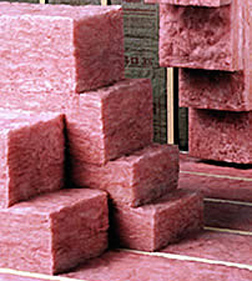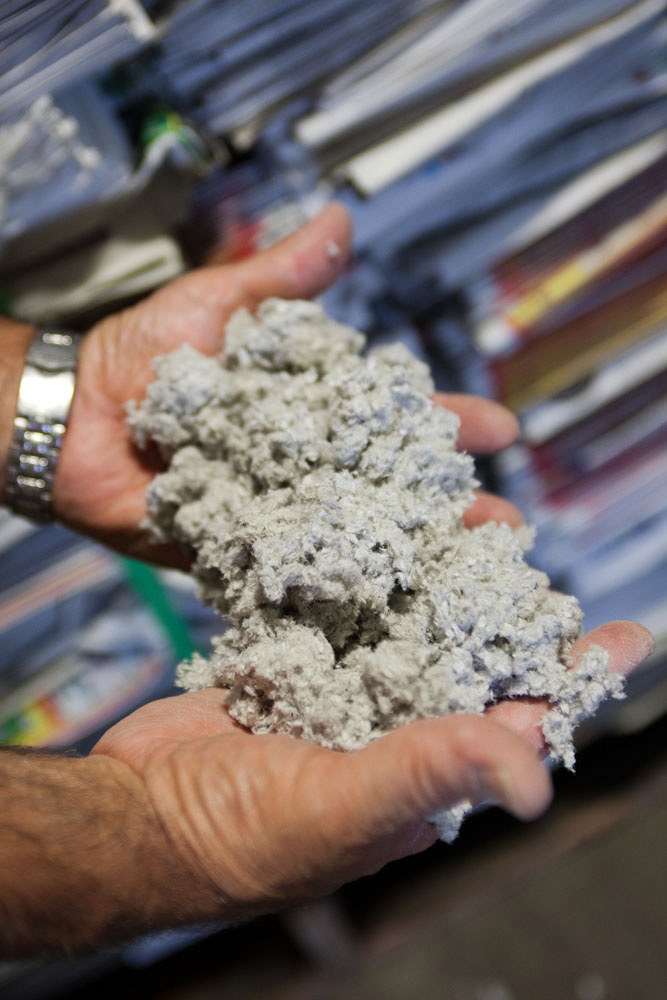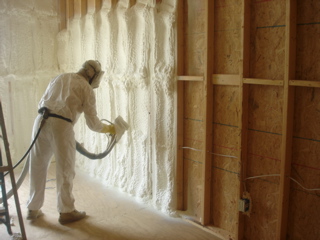Insulation Choices and Pricing for Your Home
If you’re a homeowner and looking to beef up your insulation, which material is best for you? Insulation comes in many forms these days and there is not a simple answer. One type of insulation will be better suited for your situation than another. Some installations you can actually do yourself and others require the help of a professional
NOTE: R-value – measures resistance to heat transfer – the material’s energy efficiency.
Types of Insulation:
Rolls and Batts Insulation
Fluffy blankets in long strips or precut pads that fit between studs in the walls or joists in the ceilings. They are most commonly made of fiberglass, but you can also find ones made from cotton (shredded denim scraps), mineral wool (made by melting slag from blast furnaces) and real sheep’s wool.
Best Use: In walls gutted down to the studs or in attics
R-value per inch of thickness and UNINSTALLED cost of the roll or batt:
Fiberglass – R-3 to R-4.3
@ $0.40 – 0.80 /sqft (extra dense are around $1 / sqft) – uninstalled
Cotton – -3.4
@ $0.80 – 1.00 / sqft – uninstalled
Mineral Wool – R-3.6
@ $0.40 / sqft – uninstalled
Wool – R-3.5
@ $2.75 / sqft – uninstalled
Loose Fill or Cellulose Insulation –
Smaller bits of insulation that are typically blown into attics. The material can be be injected from the interior into wall cavities through small holes (typically about 2”) It can also be installed from the exterior, which involves prying up the siding or drilling through the sheathing. However it is installed, the process and repairs are normally why the price climbs up quickly
Best Use: To beef up attic-floor insulation or inside existing walls if budget is tight
R-value per inch of thickness and INSTALLED cost of the loose fill or cellulose
Fiberglass (formaldehyde treated or untreated) –
installed (attic): R-3 to R-4
@ $0.50 – 1.00 /sqft (depth of 3.5 inches)
installed (walls): R-3 to R-4
@ $1.30 – 2.00 / sqft (depth of 3.5 inches)
Cellulose (80% ground up newspaper, 20% borate for fire retardant) –
installed (attic): R-3.6 to 3.8
@ $0.50 – 1.00 /sqft (depth of 3.5 inches)
installed (walls): R-3.6 to 3.8
@ $1.30 – 2.00 / sqft (depth of 3.5 inches)
Mineral Wool –
installed (both): R-3.4 – 4.2
@ $0.50 – 1.25 /sqft (depth of 3.5 inches)
Expanding Foam Insulation
Made of either open-cell or closed cell polyurethane (a plastic) or a special type of cement. It’s applied as a soft foam or foamy liquid filling all spaces as it expands. More costly than other options because it must be installed by a professional, but the most effective of them all because it expands to fill all leaks
Best Use: To beef up attic-floor insulation or inside existing walls if budget is tight
R-value per inch of thickness and INSTALLED cost of the Expanding Foam insulation
Open Cell Polyurethane –
Installed Attic (Expands to 100 times its liquid size): R-3.6
@ $1.50 / sqft (depth of 3.5 inches)
Installed Open Walls (Expands to 100 times its liquid size): R-3.6
@ $1.50 / sqft (depth of 3.5 inches)
Installed Closed Walls (Tamer Version -Expands to 60 times its liquid size): R-3.6
@ $1.50 / sqft (depth of 3.5 inches)
Closed Cell Polyurethane
Installed Attic (Expands to 30 times its liquid size): R-6 to R-7
@ $3.00 / sqft (depth of 3.5 inches)
Installed Open (only) Walls (Expands to 30 times its liquid size): R-6 to R-7
@ $3.00/ sqft (depth of 3.5 inches)
Cementitous Foam (can also be sprayed in a thin layer to patch leaks, then use other insulation as fill)
Installed Attic (Expands to 30 times its liquid size): R-3.9
@ $1.50 – $2.00 / sqft (depth of 3.5 inches)
Installed Open (only) Walls (Expands to 30 times its liquid size): R-3.9
@ $1.50 – $2.00 / sqft (depth of 3.5 inches)



No comments yet.